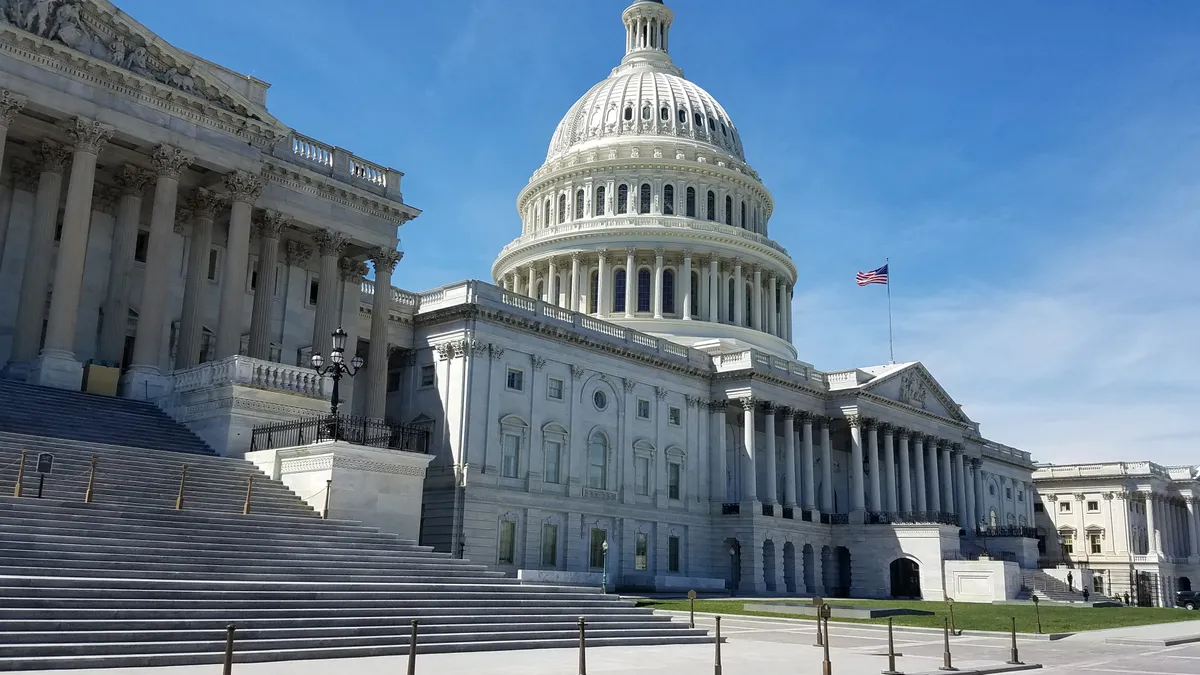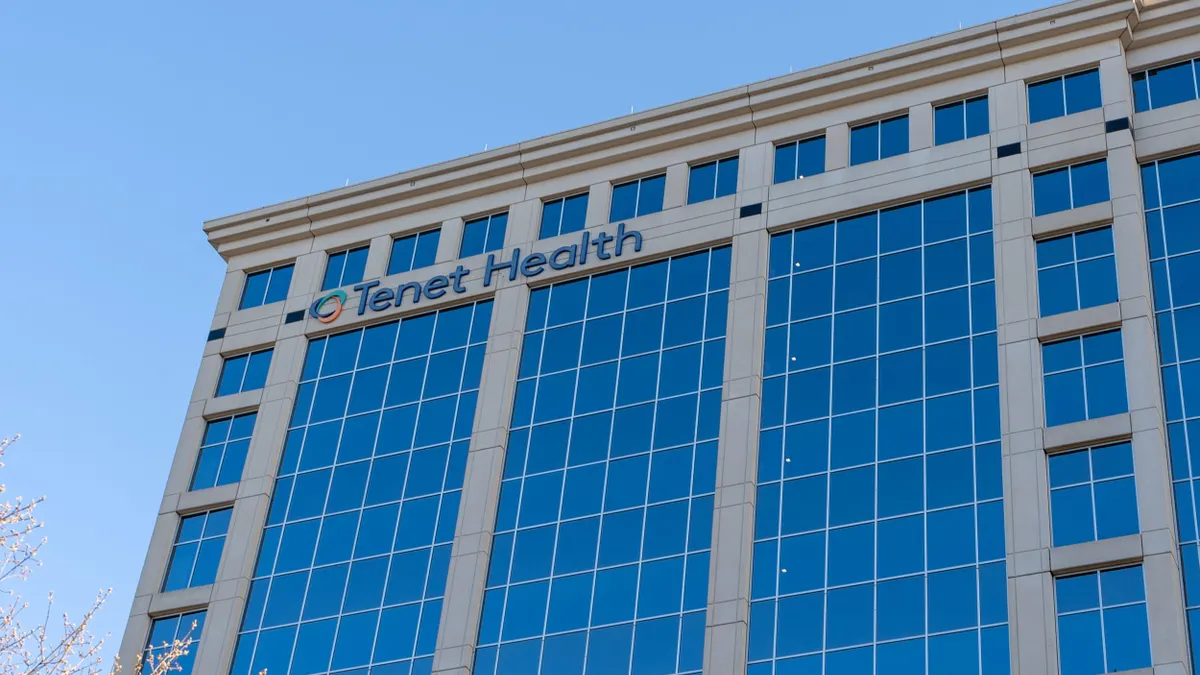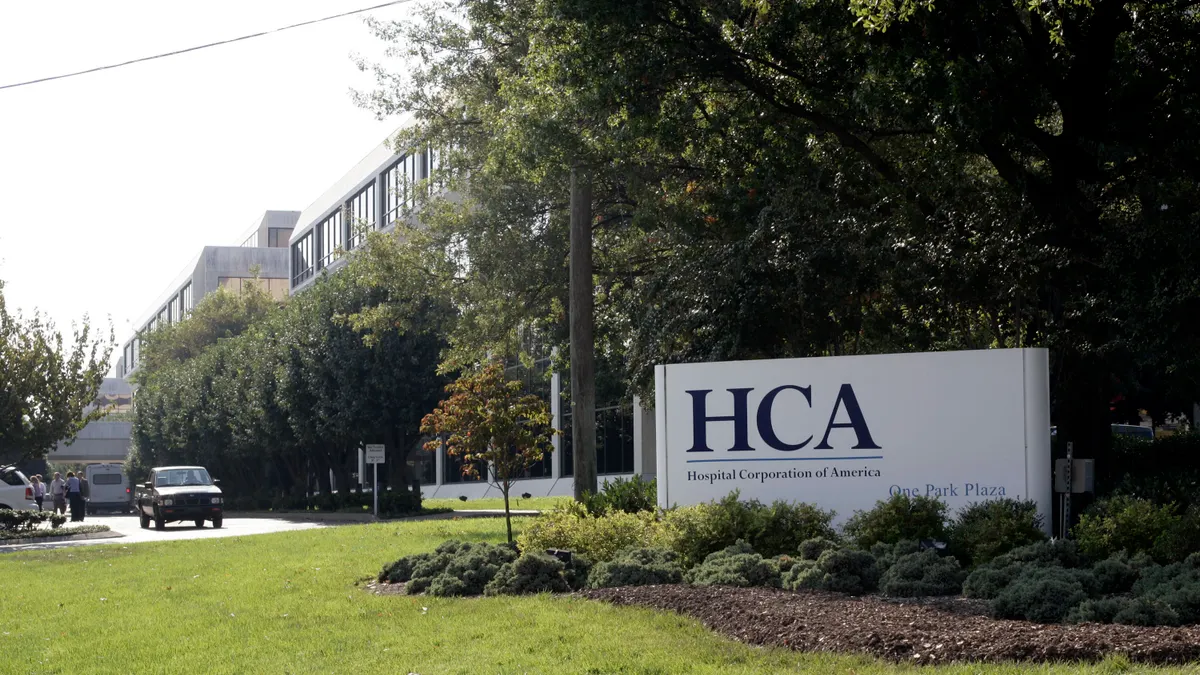Republican lawmakers called for more oversight of nonprofit hospitals during a Tuesday House hearing, accusing the providers of skirting charity care requirements and misdirecting tax-exempt funding toward non-healthcare programs.
Nonprofit hospitals have long been criticized by lawmakers on both sides of the aisle for benefiting from tax breaks and under-delivering on promises to deliver community or charity care to low income patients. Several watchdog reports and investigations from lawmakers have concluded large nonprofits routinely receive more benefits from tax breaks than they provide in community care, and can even “price gouge” low income patients.
However, on Tuesday, Republicans at a Ways and Means Oversight subcommittee hearing mostly led the charge for reform, claiming nonprofits don’t pass along financial benefits to patients.
“Patients with financial insecurity are still being asked to jump through extensive hoops — providing bank statements, loan records, detailed household budgets on short notice — just to find out if they qualify for financial aid,” said Rep. Beth Van Duyne, R-Texas. “At the same time, these nonprofit hospitals continue to face only vague and limited requirements from the IRS to maintain their privileged tax status. I think my Democrat colleagues would agree with me — that imbalance remains troubling.”
Witnesses at the hearing included academics, who accused nonprofit health systems of gaming the system to reap benefits, including double-dipping into rural hospital designations for better tax breaks. Executives from nonprofit hospitals were not present at the hearing.
Ge Bai, professor of health, policy and management at the Johns Hopkins Bloomberg School of Public Health, said nonprofit hospitals tax-exempt status should even be reconsidered to promote competition.
Nonprofit hospitals receive a slew of benefits that hinder competition with private health systems, including over $37 billion in annual tax-exempt benefits to fund real estate ventures, investments and access to federal drug discount programs, according to Bai.
“Tax-exempt status was granted to them based on the situation more than a century ago, when hospitals were solely staffed by volunteers to care for the poor,” said Bai. “It does not reflect the situation, and it gives nonprofits an advantage and fuels consolidation in the hospital market.”
Other witnesses said that nonprofit health systems had misallocated tax-exempt funds away from their “core mission” to support “woke” ideologies and “DEI bureaucracies.”
Stanley Goldfarb, chairman of Do No Harm, an organization of medical professionals dedicated to keeping “identity politics” out of practice of medicine, lambasted Mayo Clinic, Kaiser Permanente, Providence and others for spending on diversity, equity and inclusion employee trainings. He said the spending ran afoul of directives from the Trump administration that seek to bar federal funding from supporting DEI initiatives.
“They are spending valuable time and organizational resources on these issues. This is a profound betrayal of the public mission,” said Goldfarb. “It is also at odds with the national priorities recently established through a series of executive orders issued earlier this year, yet many nonprofit hospitals have been and continue to act in direct opposition to those priorities.”
Witnesses suggested that increased transparency, including stronger reporting requirements for community benefit reporting, would be a good first step toward holding hospitals accountable. Some witnesses also wanted to see tax forms have clearer delineations of community impact.
“For example, many hospitals are part of large conglomerates, mega systems, which often report a Schedule H [Form 990] at the system level, which does not allow for auditors, researchers and policymakers to understand community benefit reporting at the individual hospital level,” said Christopher Whaley, associate director of Brown University’s Center of Advancing Health Policy through Research.
Many lawmakers were also enthusiastic about raising reporting requirements.
“The community benefit standard is supposed to ensure that hospitals truly serve the public, and not just themselves, but when that standard is unclear, patients end up paying the price while hospitals enjoy tax privileges with limited accountability,” said Van Duyne.
However, some Democratic lawmakers said that nonprofit hospitals were a critical resource for their constituents, including Rep. Terri Sewell, D-Ala. Since 2011, 16 hospitals across her state had closed, according to Sewell. She worried that if Republicans sought to remove the hospitals’ tax exempt status, it would push more facilities over the edge financially.
“It's disturbing to me that ... this hearing is [focused] on ways to harm my constituents who rely on services from nonprofit hospitals,” said Sewell. “The very existence of rural hospitals is an immense community benefit. They are often the only source of medical care in their area ... They are also major employers in the rural communities that I represent.”
Nonprofit hospitals also are more likely to care for the country’s most vulnerable populations — a challenge that likely will become even more vexing as patients are unenrolled from Medicaid due to President Trump’s One Big Beautiful Bill, said Jill Horwitz, professor at the Northwestern Feinberg School of Medicine and at the Northwestern Pritzker School of Law. The professor said hospitals already operate on slim margins, and will struggle to absorb the costs of providing more uncompensated care.
“Nonprofit hospitals provide vital and sustainable services in communities, and the services they provide are more likely than for-profits to meet important social needs,” she said. “In today’s market and demographic environment, policymakers ought to focus on ways to strengthen, and not weaken, nonprofits in the American hospital system.”






















